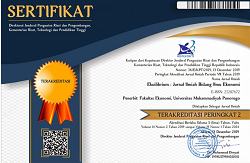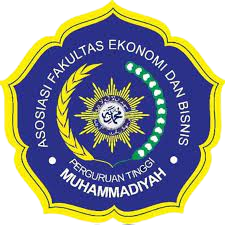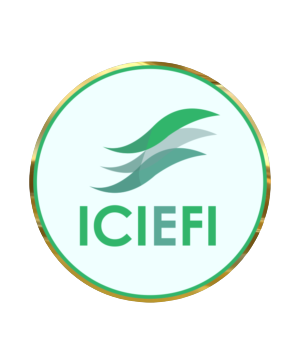Evaluation of the Success of the Digital Marketing Implementation of the Reyog Ponorogo Equipment with the Wijayanto Information's System Success Model Approach and Millennial Culture as a Moderating Variable
DOI: 10.24269/ekuilibrium.v17i2.2022.pp149-157
Abstract
This study aims to evaluate the success of the Ponorogo reyog digital marketing system using the Wijayanto Information System success model approach, and the value of millennial culture as a moderating variable. The method used is a quantitative research approach, with a sample of 250 respondents, namely users at start-up reyogku.com and ukmreyog.solution17.com. data analysis using SEM. The results showed that product quality had an effect on use, use had an effect on benefits, and millennial cultural values moderated the quasi, influence of product quality on digital marketing use of Reyog Ponorogo devices. recommendations from the results of this study are the need for digital literacy for reyog Ponorogo craftsmen so that they are able to do marketing through digital marketing, millennial culture in trading products that have historical or cultural values has an important role, so it is necessary to instill cultural values in the millennial generation through digital media.
Keywords
Digital; Marketing; Millennial; Ponorogo
References
- Chien, S.W., Tsaur, S.M., 2007, “Investigating the Success of ERP System: Case Studies in Three Taiwanese High Tech Industries”, Computer in Industry, vol. 58, no. 11, pp. 783-793.
- DeLone, McLean, 2003, ”The DeLone and McLean Model of Information System Success: a Ten-Year Updated”, Journal of management information system, vol. 19, no. 4, pp. 9-30.
- Hameed S., Javaid Butt, and Tariq, M., J., 2012, ”The Factors Causing Failure of Foreign Enterprises Resource Planning (ERP) Systems in Pakistan”, African Journal of Business Management, vol. 6, no. 3, pp. 946-955.
- Heru Dwi W, 2015, Pengaruh Nilai-Nilai Budaya Generasi Millennial dan Budaya Sekolah terhadap Ketahanan Individu, Jurnal Ketahanan Nasional, Vol Xx1 No. 1, Pp. 14-22.
- Ifinedo, P., 2007, “Extending the Gable dkk. Enterprise Systems Success Measurement Model: a Preliminary Study”, Journal of Information Technology Management, vol.17, no. 1, pp.14-33.
- O’Brien James A., dan Marakas, George, 2009, Management Information Systems, Ninth Edition New York: McGraw-Hill.
- Parasuraman, 1998, “A Multiple Item Scale for Measuring Consumer Perception of Service Quality”, Journal of retailing, vol. 64, no. 1, pp. 12-40.
- Rapitasari, 2016, Application Based Digital Marketing As A Strategy To Improve Customer Satisfaction, Jurnal Cakrawala Vol. 10 No. 2 Desember 2016: 107 – 112
- Ryan, D., 2014, Understanding Digital Marketing, Marketing Strategies for Engaging the Digital Generation, Great Britain: Kogan Page Limited.
- Wei, K. S., Loong, A. C., Leong, Y. M., & Ooi, K. B., 2009, “Measuring ERP system success: a respecification of the Delone and McLean’s IS success model”, Paper presented at the Symposium on Progress in Information and Communication Technology (SPICT’0), Kuala Lumpur, Malaysia.
- Wijayanto, 2018, Model Kesuksesan System Informasi, http://oipas.sentraki.umpo.ac.id/model-kesuksesan-sistem-informasi-1
- Wijayanto, 2020, Analysis of Information System Success in the Colleges in East Java with Wijayanto’s Approach of Information System Success Model, Ekuilibrium: Jurnal Ilmiah Bidang Ilmu Ekonomi Vol. 15, No. 1.
- Yuswohady, 2016, Millennial Trends 2016 – yuswohady.com diakses Maret 2022
Refbacks
- There are currently no refbacks.

This work is licensed under a Creative Commons Attribution-ShareAlike 4.0 International License.













